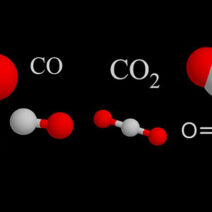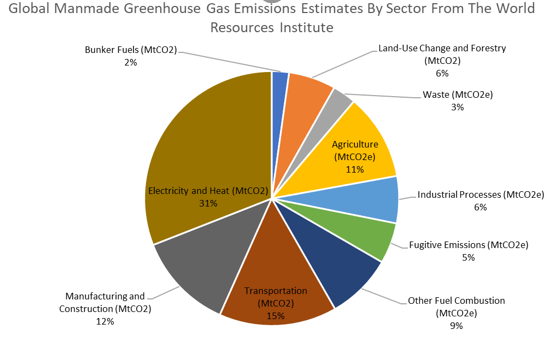The intersection of animal agriculture and global warming is an increasingly pivotal topic in contemporary discussions about climate change. The systemic impact of meat production on the environment evokes a complex tapestry of ecological, social, and economic threads that warrant meticulous examination. Understanding this dynamic is essential for individuals and policymakers alike, as the urgency of addressing climate change intensifies.
To grasp the profound contribution of animal agriculture to global warming, it is critical to first consider the scale and operation of the livestock sector. The Food and Agriculture Organization (FAO) of the United Nations has reported that livestock accounts for approximately 14.5% of global greenhouse gas emissions. This figure encapsulates a broad range of emissions resulting from various stages of meat production, including methane released during digestion, nitrous oxide from manure management, and carbon dioxide from feed production and transportation.
Methane, in particular, merits special attention due to its potency as a greenhouse gas. Its heat-trapping ability is estimated to be over 25 times greater than that of carbon dioxide over a 100-year period. Ruminant animals, such as cows and sheep, are significant methane producers due to a digestive process known as enteric fermentation. This biological mechanism is not only an ecological concern but also a source of intense debate regarding its implications for dietary practices and agricultural policies.
The feed conversion ratio also plays an instrumental role in the environmental impact of meat production. To produce one kilogram of beef, for example, it is estimated that several kilograms of feed must be consumed, which translates into substantial resource expenditure. The cultivation of feed crops necessitates vast expanses of land, intensive use of water, and the application of fertilizers, which often contribute to further emissions through soil degradation and runoff that pollutes waterways. Such practices raise profound questions about resource allocation and sustainability, particularly in the context of a global population projected to reach nearly 10 billion by 2050.
Moreover, deforestation linked to animal agriculture exacerbates the environmental crisis. Vast tracts of forests are cleared to create pastureland for livestock or to cultivate feed crops. This not only diminishes biodiversity but also undermines the earth’s natural carbon sinks. Forests serve as essential reservoirs for carbon storage, and their destruction leads to an immediate release of carbon dioxide into the atmosphere. The loss of these vital ecosystems further compounds the challenges faced in mitigating climate change.
In the socio-economic landscape, the phenomenon of agricultural intensification—where industrial practices are adopted in the production of livestock—has precipitated a myriad of dilemmas. Small-scale farmers often struggle to compete in a market dominated by large agribusinesses that prioritize efficiency and cost reduction over ecological stewardship. This situation cultivates a reliance on unsustainable practices that not only hinder local economies but also engender adverse environmental ramifications.
The implications of diet on climatic conditions also emerge as a pivotal theme in this discourse. Shifts towards plant-based diets have garnered attention as a viable pathway to reduce greenhouse gas emissions. Research indicates that a considerable decrease in meat consumption could alleviate pressure on natural resources and significantly curtail carbon emissions. Moreover, plant-based diets tend to require less land and water when compared to carnivorous diets, positioning them as a pragmatic solution in combating climate change.
While transitioning towards more sustainable dietary practices is imperative, education and awareness are crucial components of this change. Public perceptions of meat consumption—as a staple of diets and an ingrained cultural norm—pose barriers to immediate action. Consequently, it becomes essential to cultivate a public understanding of the ecological repercussions of consumption choices. Dialogues that illuminate the intricacies of this issue can inspire individuals and communities to rethink their connection to food sources.
Technological innovations and sustainable farming practices also present opportunities to mitigate the adverse effects of animal agriculture. Regenerative agriculture, which focuses on restoring soil health and enhancing biodiversity, can not only reduce greenhouse gas emissions but also improve the resilience of agricultural systems. Techniques such as rotational grazing and agroforestry illustrate pathways toward a more sustainable future, enhancing both the profitability and ecological balance of farming practices.
It is imperative that policymakers integrate these insights into legislative frameworks aimed at combating climate change. Strategies that promote plant-based food systems, incentivize sustainable agricultural practices, and support small-scale farmers could yield substantial benefits. Policymakers must consider both environmental and socio-economic factors when crafting policies, ensuring a holistic approach to the challenges presented by climate change. International cooperation will be fundamental, as the implications of meat production transcend borders and cultural contexts, necessitating a collective response.
In conclusion, the relationship between animal agriculture and global warming is both multi-dimensional and critical. The emissions produced by livestock farming, deforestation for pasture land, and the socio-economic ramifications of industrial agriculture underscore the urgency of addressing this issue. Transitioning towards sustainable dietary practices and agricultural systems offers a pragmatic pathway to mitigate the climate crisis. By fostering awareness and driving collective action, we can pave the way for a more sustainable future—one that acknowledges the intricate interplay between our food systems and the health of the planet.







